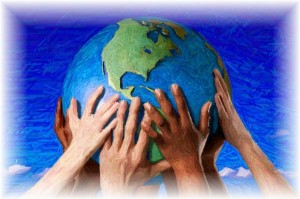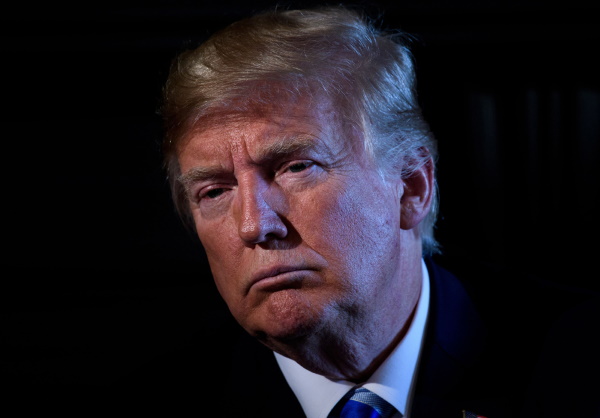
By Bill Starlin
You live a relatively charmed life. You’ve been at the job for a few years. Maybe you have been here since high school. Maybe you got here fresh from college. It’s all you professionally know.
You’ve made many friends, you max your 401k every year and you’re very comfortable with your work environment, both professionally and socially. Your comfort zone is cushy and familiar.
Then one day they call a company meeting. Sometimes they tell you how great the company is doing. More often than not there is a change in policy or in the way a company does business. You seat yourself next to your department cluster and your office friends.
Like most of these company meetings, you take your paper handouts, and the speakers tend to sound like Charlie Brown adults. Then you hear something about globalization. You’ve heard it before, but you never really bothered to pay much attention to it. You don’t build cars or answer customer service calls.
What does globalization mean to you? How does or will it affect you when your company has that meeting? Over the next couple days, the good people here at Planet Ill are going to attempt to normalize this topic and make it applicable to you. It’s not an attempt to decide for you whether it’s a good or bad thing. It’s an attempt to inform you enough for you to draw an intelligent conclusion or at least make you want to gather more information yourself.
While there are other forms of globalization we’ll restrict today’s piece to economic globalization. At its core, globalization is the manifestation of a world shrinking through trade initiatives, legislative activity, technological advancement, economic initiatives, and social changes.
In a global economy, at least in theory, it is generally more efficient to have a global market free of protectionist tariffs, and other forms of economic obstructionism. In essence, with all factors, equal (yes I know they rarely are) the motion of trade should be free in a capitalist system. But what happens in a world where almost nothing is equal and there are sharp differences in the standard of living and resources for different pools of workers and divisions of labor?
If you are an employee of a manufacturing company in a first world country, consider yourself on notice. The current market is less a recession and much more likely a paradigm shift in your industry towards cheaper and more efficient labor. If you lost your manufacturing job because of this, it is not coming back.
Just as companies have competitors, your competition is foreign labor; labor in countries where the workers earn a fraction of your wages, where a company does not have to pay for the healthcare of the work force, and where the overall cost of manufacturing shipping and returning the end product is just flat out cheaper. Unless you raise the bar with a new technology or significantly improve the manufacturing above the present level, your job is, or will be gone. If it’s not gone you will have to make so many concessions, that your present standard of living will be permanently altered.
You’ve seen evidence of this already with the downward pressure towards real wages and the repeated attempts by distressed automakers to the autoworker’s unions give back previously negotiated gains. It is setting a precedent for things to come. Understanding this is key to figuring out what your next move is, and also to establishing your next course of action.
It is also important to note that because standards of living in other countries are so uneven, the further confederation of nation states is bound to cause pain even among professional workers in regions where there are similar mores and ways of life, but different economic levels, that professionals from poorer countries will be called upon with increasing regularity. For example, If you have two attorneys of similar quality, and you need a contract drafted, and one charges $500 an hour while the other charges $100, which would you choose?
If you live in a third world country, things would seem to be in your favor. However upon further inspection, that may not be the case across the board. Suppose you are a farmer, or a self employed entity in a business that was formerly protected. You’ve probably been involved in that trade for most of your life, with built in markets. For example, take a farmer in an underdeveloped country. He plows his field, he grows his crops, he reaps his crops, and takes them to market. What happens when a billion dollar corporation is now with the removal of tariffs and barriers to entry allowed to compete? The very word compete becomes laughable and said farmer would never be able to match the output or the prices of that company. Where does that leave the farmer?
Well, let’s stop for a moment and digest this. If the above holds true, then it doesn’t really pay to be a worker from the first or the third world. How do you, as a worker protect yourself? Well tune in for Thursday to find out in out next installment.
Good Day and Good Luck. Read Words
-Bill
Bill Starlin may be reached via E-mail at BillStarlin@yahoo.com
Follow us on Twitter @ http://twitter.com/planetill





Good one!
Incidentally there is an interesting website that is specifically dedicated to recession victims.It offers help and discusses all issues related to recession-www.angstcorner.com. It’s worth a visit!
The arguments here are so lame! Consider you were a worker of a typewriter manufacturing plant. With the advent of computers your plant was forced to shut down, who you would blame for this? The government, computer industry or may be globalization? If what you are doing today is not competitive enough at global level, perhaps, you should think about changing your profession? Get a vocational training or become an entrepreneur?
Yes, a farmer in a developing country will suffer from open market. But thanks to this open market and cheap labor companies from developed nations will start manufacturing products in these countries raising living standard and making a path to sustainable development. What do you want to see? Billions of people continue suffering from poverty, illiteracy and malnutrition so that you can keep your status quo or give these underprivileged people a chance to raise their standard of living to a decent level? By the way, many of these people are poor today due to the fact that they were victims of historical injustice and colonial oppression.
Free market and lower trade barriers can do miracle! From Singapore to South Korea many countries have proved that it is possible to make a leap from third world to first world within several decades. Globalization is like a new technological breakthrough and it is here to stay!